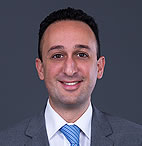
Qatar
The primary source of law in Qatar is Shari’a law ("Islamic Religious Law"). This is confirmed in the first Article of the Permanent Constitution of the State of Qatar ("Constitution") which prescribes that “Qatar is an independent sovereign Arab State and the people of Qatar are a part of the Arab nation. Its religion is Islam and Shari’a law (Islamic Religious Law) is the main source of its legislations. Its political system is democratic."
The Government of the State of Qatar, from time to time, issue rules and regulations with the objective of supplementing Islamic Religious Law when the need arises. Articles 105 and 106 of the Constitution provide every Member of the Council of the State of Qatar with the power to propose bills. Once a draft bill has been reviewed and approved by the Council, and subsequently the Government, the draft law is referred to the Amir (Head of State) for ratification and promulgation. The power of law starts after publication in the official Gazette of the State of Qatar.
In many civil law jurisdictions in the MENA region, the concepts of legal professional privilege and "without prejudice" communications do not exist per se, and the parties have the right to use any document which may support their position in civil litigation. This is the position in the State of Qatar which does not have any express provision in respect of legal professional privilege. Instead, lawyer-client legal professional privilege is interpreted under Islamic Religious Law.
Indeed, lawyers in the State of Qatar are bound by duties of confidentiality which, in many cases, incorporate concepts similar to legal professional privilege.



